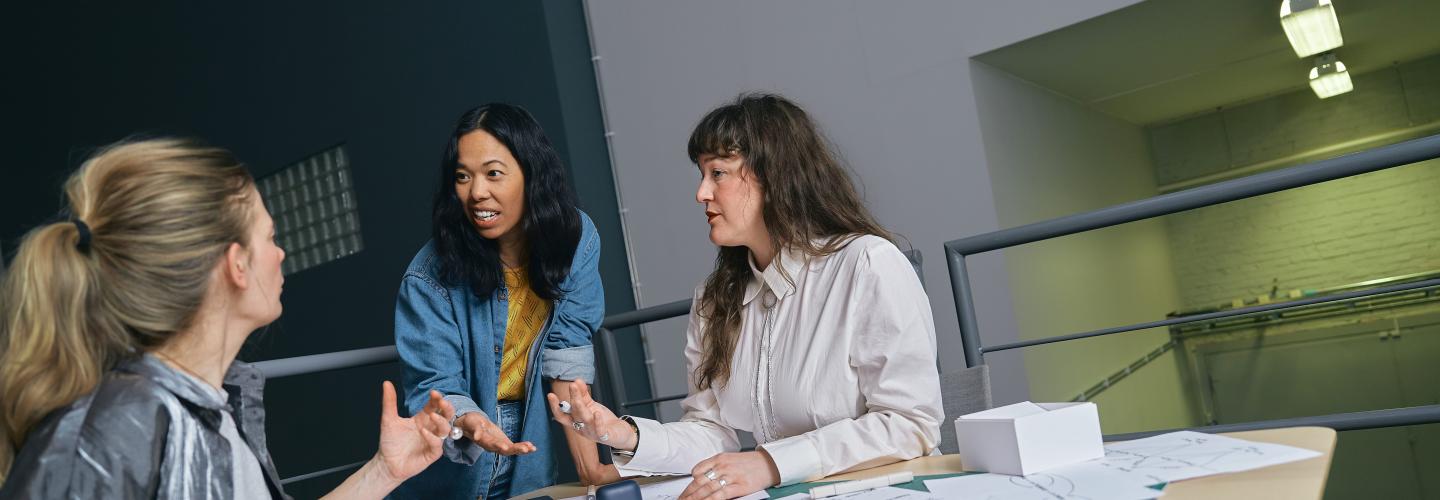
The lack of biological female representation in medical trials
Why is there a female health gap?
The historical exclusion of women* from the realms of medical research and scientific studies has led to a significant health gap, marked by frequent misdiagnosis, insufficient funding, and a distorted perception of women's health needs. This gap, deeply ingrained in outdated views on female physiology and reproductive health concerns, has fostered a healthcare system that often favors men.
The impact of gender bias on health outcomes
Cardiovascular diseases, various types of cancer, Alzheimer's disease, and autoimmune conditions affect both men and women. However, it's alarming that statistics reveal women are more likely to die from heart attacks and lung cancer. Moreover, women face higher rates of Alzheimer's disease and are more frequently diagnosed with autoimmune conditions.
1
Despite these alarming disparities, the underrepresentation of women in clinical trials due to bias, reproductive health concerns, and practical challenges such as family commitments and financial constraints have persisted for decades.
Historic exclusions and their consequences
One striking example of the dire consequences of excluding women from medical research is the Neurosedyn scandal of the 1950s. This incident, which led to severe birth defects, prompted strict regulations that barred women of childbearing age from participating in early drug trials. Although these regulations were eventually relaxed in the 1990s, a biased focus on male subjects persisted, severely limiting our understanding of how treatments affect women differently.
Funding disparities and their impact on women's health
In recent years, there has been a shift towards including more women in clinical trials. However, the practice of combining data from both sexes often obscures critical differences in treatment responses. This oversight has dire implications: women in the United States report adverse reactions to medications 52% more often than men. 2 Furthermore, medications are more likely to be withdrawn from the market due to safety concerns affecting women. This disparity underscores the importance of gender-specific research in developing effective healthcare interventions.
Despite the critical need for such research, funding for female reproductive health remains inadequate. A third of women suffer from serious reproductive health issues during their lifetimes 3 , yet this area of health research is significantly underfunded. The consequence of this neglect is a healthcare system ill-equipped to address the unique health issues women face.

Bridging the gap through inclusive practices
To effectively bridge the gender health gap, medical trials must evolve to inclusively represent women, particularly in how they address and account for the unique health issues and conditions that disproportionately affect women. Implementing stronger diversity, equity, and inclusion policies in medical research, along with boosting funding for women's health research, technology, and innovation, are imperative steps toward achieving equity in healthcare.
Furthermore, prioritising women's health has broader societal benefits, including enabling women's fuller participation in the workforce and driving economic growth. An inclusive approach to disease and treatment that acknowledges the distinct differences between men and women is not only fair but essential for developing more effective healthcare for all. This shift in perspective and policy is overdue, and it's time for stakeholders in the healthcare system to commit to making these necessary changes for the betterment of public health and equity.

AFRY’s approach to FemTech integration
In our pursuit of equitable healthcare, FemTech emerges as a vital tool in addressing the female health gap. At AFRY, we are committed to harnessing the power of technology to drive positive change in women's health. Our multidisciplinary teams of engineers and designers collaborate with FemTech innovators to develop and implement cutting-edge solutions that address women's specific needs. From developing mechanical design in hormone readers to leveraging data analytics for personalised healthcare recommendations, we strive to offer tailored FemTech solutions that bridge historical biases and foster inclusive healthcare practices.
Did you know that...?
- Only 29-34% of participants in phase 1 trials are women, where medicine or treatment is tested on humans for the first time.
4
- Medicines are 3.5 times more likely to be withdrawn due to safety risks in female patients compared to men.
5
- Less than 2.5% of publicly funded research has been dedicated exclusively to female reproductive health, despite a third of women experiencing severe reproductive health problems in their lifetime.
6
- Five times more research has been done on male erectile dysfunction than premenstrual syndrome, which affects 90% of women. 7


- 42% of women with endometriosis and fibroids felt their cases were not treated with dignity and respect. 62% were not satisfied with the information they received about treatment options, and almost 50% were not informed about the short- or long-term side effects of these options.
8
- LGBTQ+ individuals are more likely to suffer from physical and mental health issues than their heterosexual peers.
9
- There is almost no working research currently being done on how medical treatments affect trans bodies. 10
*In this text, we have chosen to refer to girls and women due to the lack of officially recognised and accepted terms covering a more diverse population. However, we would like to emphasise that anyone born with a uterus is included regardless of the preferred pronoun. We are also aware that the term FemTech itself can be exclusionary. Therefore, we welcome any suggestions for better expressions and terms to use.
Footnotes
- 1. https://www.ncbi.nlm.nih.gov/pmc/articles/PMC10077654/ a↩
- 2. https://www.mckinsey.com/mhi/our-insights/closing-the-womens-health-gap-a-1-trillion-dollar-opportunity-to-improve-lives-and-economies a↩
- 3. https://www.theguardian.com/education/2019/dec/18/women-have-been-woefully-neglected-does-medical-science-have-a-gender-problem a↩
- 4. https://grants.nih.gov/policy/inclusion/women-and-minorities/guidelines.htm a↩
- 5. https://www.mckinsey.com/mhi/our-insights/closing-the-womens-health-gap-a-1-trillion-dollar-opportunity-to-improve-lives-and-economies a↩
- 6. https://www.refinery29.com/en-gb/2020/09/10005515/exploring-the-gender-health-gap a↩
- 7. https://www.researchgate.net/publication/8453892_Stress_Quality_of_Life_and_Physical_Activity_in_Women_with_Varying_Degrees_of_Premenstrual_Symptomatology a↩
- 8. https://endometriosis.org/news/general/appgwh-report-highlights-insufficient-care-for-women-with-endometriosis-and-fibroids/ a↩
- 9. https://www.ncbi.nlm.nih.gov/pmc/articles/PMC10932474/ a↩
- 10. https://www.ncbi.nlm.nih.gov/pmc/articles/PMC7880308/ a↩






